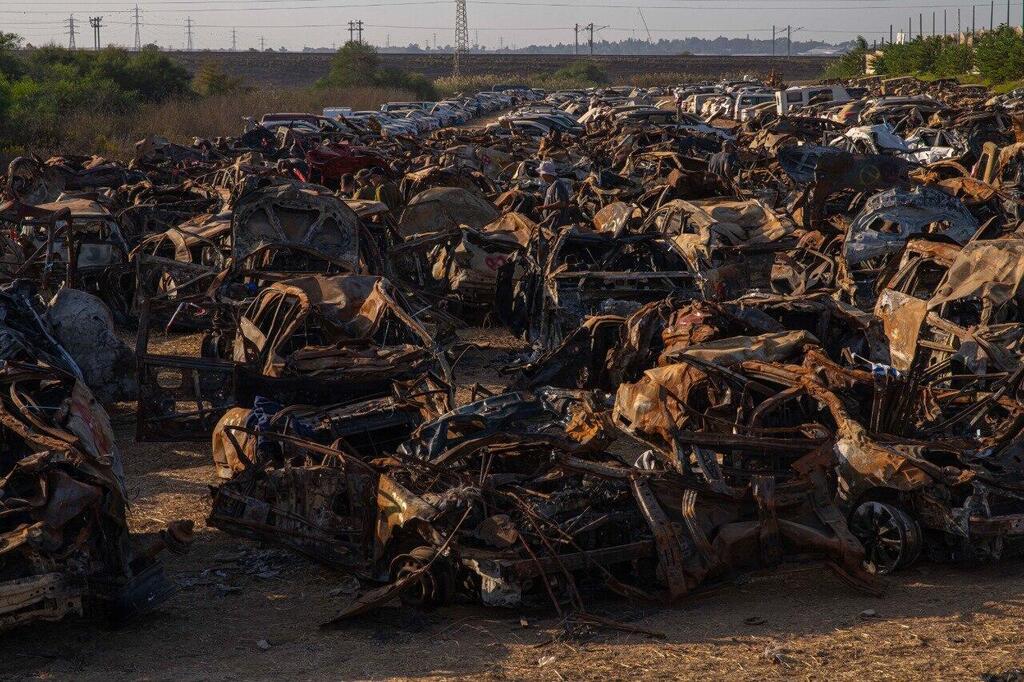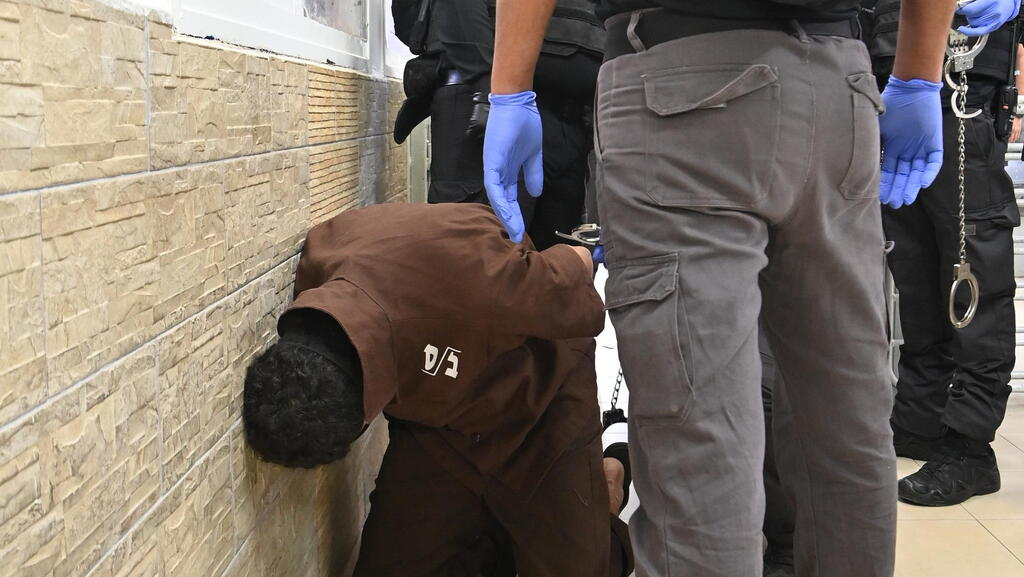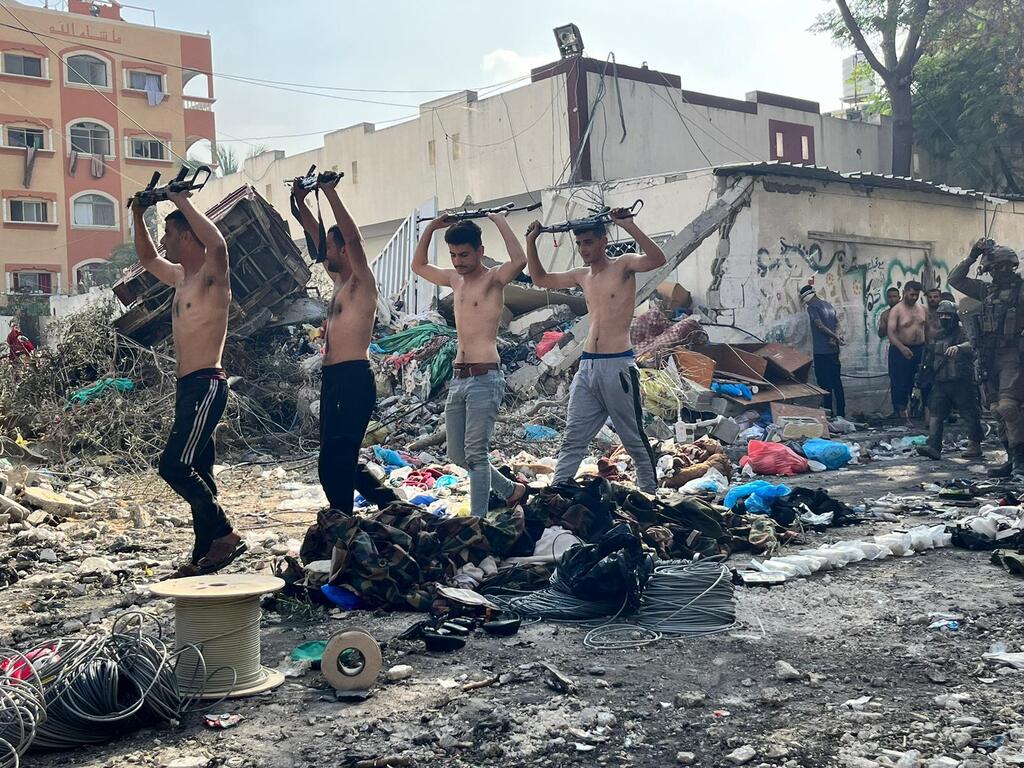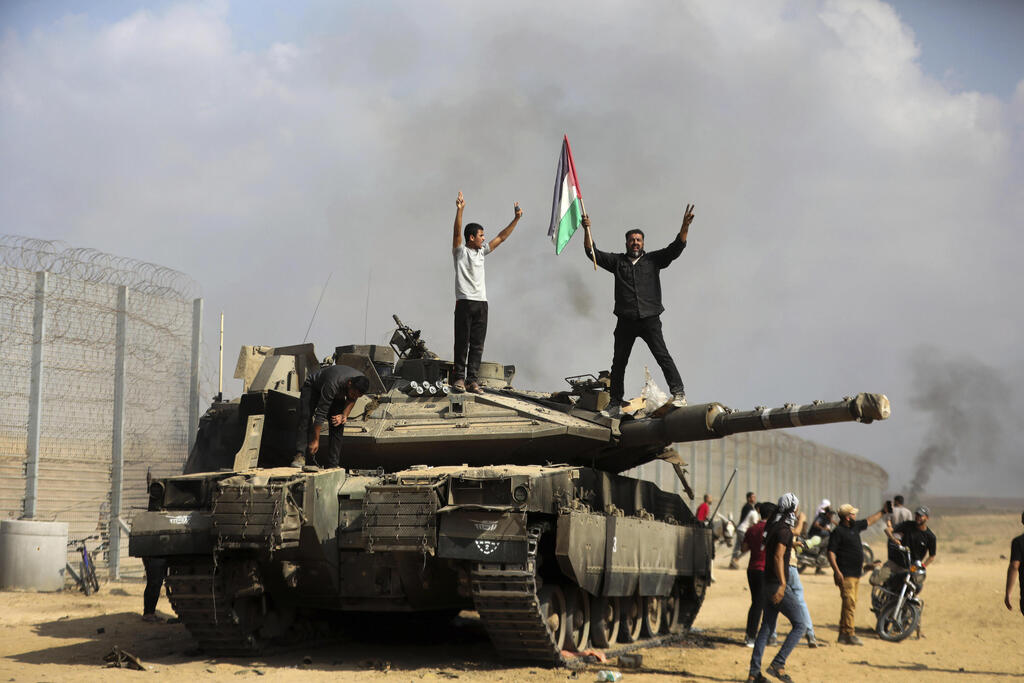Getting your Trinity Audio player ready...
The most striking element of the Nukhba interrogations is their calmness when asked about their involvement in the October 7 massacre. They describe the atrocities they committed and the instructions they received not with excitement but rather with indifferent language and a blank stare. Occasionally, one may try to absolve himself of guilt by claiming he was possessed, but most testify that they acted deliberately and not out of frenzy.
Like the vicious guard dogs trained by Napoleon in George Orwell's "Animal Farm," every ideological totalitarian regime insists on establishing a zealous force of loyalists, ready to sacrifice themselves for the leader. The force is devoid of any moral qualms, towards both external enemies and their own people. Examples for this are the Nazi SS in Germany, the Republican Guard in Syria and Iraq and the Iranian Revolutionary Guards Corps.
The Nukhba unit (elite in Arabic) was founded by Yahya Sinwar, who planned the October 7 attack for the past decade, which he saw as a divine command and his life's mission. The unit was established in 2013, about a year after he was released from Israeli prison. One of its missions was to bring about the "Al-Aqsa Flood." Nukhba members were meant to serve as the spearhead by carrying out special missions, including infiltration, kidnapping, and massacring Israelis.
The Nukhba members are equipped with high-quality weapons, undergo rigorous training, including prolonged stays in tunnels without food and water, and receive unique training such as paragliding courses (in Malaysia) or sabotage and intelligence (in Iran). Nukhba members are meticulously selected and receive higher pay than other members of Hamas' military personnel ($400-500 per month).
The members selected are already military personnel aged between 18-20 who show high skills, religious zeal, and ideological commitment to the cause. Once integrated into the unit, the operatives face tough internal scrutiny and many of them do not know their commanders until the moment they are sent on missions.
Younes Khalid Abu Madi, an operative from the Nukhba's engineering unit from Khan Younis who was captured during the war, illustrates in his interrogation the skills required to be a Nukhba soldier.
"We spent 24 days in a tunnel. The goal was to fight the army, mainly to set up ambushes. To wait for soldiers. Shoot at them and kill them. We had AK-47s, grenade launchers, RPGs, explosives, and 'Negev' machine guns. In the tunnel, there were death-like conditions that were impossible to live with: food shortage, lack of water, and lack of oxygen. Gas was released in every explosion, which was almost completely airtight. When someone died, the tunnel filled with a bad smell and flies," he said.
The Nukhba's debut was during Operation Protective Edge in 2014 when the central force used offensive tunnels to carry out raids against the IDF on the Gaza border. In addition, the Nukhba operatives stood out in fighting IDF forces who entered the Strip during the operation to destroy the tunnels.
In 2018, the force was estimated at 1,500 people, and on the eve of the massacre, their number was estimated at 5,000 out of about 30,000 members of Hamas' military wing, and about 100,000 Hamas operatives in the Gaza Strip. Israel estimates that between 1,000 and 1,500 members of the unit were killed since October 7.
"Hold your head high with pride, Dad"
The dehumanization of Israelis, especially Jews, is deeply rooted in the Nukhba members. Like the soldiers of the German police battalions in Christopher Browning's book "Ordinary Men," who saw the destruction of Jews as work, or the Hutu tribe educated that Tutsis are like cockroaches to be exterminated, so did the Hamas terrorists on October 7.
They did not see the hunting of Israelis or mass rape as harming humans. They stole bodies or body parts as profitable assets and described kidnapped women as "noble horses." The orders given to the unit members were not uniform; some were only instructed to kill, while others were also ordered to abduct.
Israel revealed a chilling recording on October 24 in the UN Security Council, of Mahmoud, a Hamas operative who spoke with his family on that horrible Saturday. Israelis who have heard the recording will probably recall it as the epitome of Israeli dehumanization.
"Hello Dad, I'm talking to you from Mefalsim (kibbutz in Israel). Open WhatsApp and see. I killed ten Jews with my own hands. Your son killed Jews! I'm talking to you from a Jewish woman's phone. I killed her and her husband, their blood on my hands... Hold your head high with pride, Dad," he said.
The terrorist's crying mother, excitedly blessed him, "May God bring you back home in peace, I wish I could join you," and the son responded, "Mom, your son is a hero," and told his brother Alaa, "I can't come back alive, mom brought me for the religion."
4 View gallery


The aftermath of the Nova music festival where hundreds were massacred
(Photo: Yuval Chen)
The Nukhba's low regard for Israeli lives is based on four interconnected pillars: the extremist Islamic perception that sees the enemy as an object to be annihilated and not as a fellow human, the profound influence of global jihadist ideas on Hamas operatives (materials by Abdallah Azam, the Palestinian religious mentor of Bin Laden, found on the bodies of the October 7 massacre terrorists), the anti-colonial thinking that grants the oppressed the right to resort to unrestrained violence, and the influence of social networks, especially TikTok, which occupies a central place in the lives of the Palestinian Generation Z who led the massacre's actions.
Amar Abu-Awsha, a Nukhba operative from Tufah, who was captured in Kfar Azza, provides an example of the depth of dehumanization in his Shin Bet interrogation. "Our mission was only to kill. We weren't supposed to capture, just kill. To kill whoever we see and then return. Killing without distinguishing between men, women, and children. They told us all settlers are soldiers... Kill anyone you see."
Zionists are an armed society based on land theft, desecrating holy places, and love bloodshed. The youths are conscripted into mandatory military service, so all Jews are fighters, except infants and the mentally ill, who are worthless.
Mohammad Khaleeli from Gaza City, captured in Sderot, provides a religious justification in his interrogation for the massacre. "The goal was to cleanse the occupied lands and Jerusalem from the impurity of the settlers. This could be achieved through jihad with weapons and killing or through inviting them to join Islam (Dawah). But now we can't call Jews to join Islam, so only jihad remains."
The deep ideological indoctrination behind the war crimes was achieved through religious teachings provided to members of the Nukhba. Many books containing such directives were seized during the war in Gaza, illustrating the worldview Hamas imposes: hostages as spoils, especially women. They also give permission to torture and kill captives stripped of their humanity and see all Israelis as enemies.
The book "Fatwas," issued by Hamas's Shura Council in Gaza led by Ahmed Bahar, deputy head of the Palestinian parliament who was killed during the war, explains why all Israelis are legitimate targets. The book says that "Zionists are an armed society based on land theft, desecrating holy places, and love bloodshed. The youths are conscripted into mandatory military service, so all Jews are fighters, except infants and the mentally ill, who are worthless. There is no distinction between men, women, elders, and youths, and they are all seen as targets for killing or prisoners of war when captured alive."
In their interrogations, Hamas members deny any wrongdoing. Hamas members portray themselves as incapable of committing war crimes, certainly not sexual offenses that contradict Islamic values. Senior Hamas officials claim that civilians committed war crimes, and the organization itself disseminated misleading images of armed terrorists holding Israeli babies (whose parents they murdered), or shaking hands with released hostages, which Hamas sees as expressions of humanity.
Yousef al-Mansi, who served as a minister in the Hamas government elaborateed on October 7 with his interrogators. "What happened on October 7 is contrary to Islam's teachings... The prophet clearly forbade killing children, women, and elders, cutting down trees, destroying water wells... What happened is a violation." Jihad Hameida, a Nukhba commander from Rafah who was captured in Kibbutz Sufa, added: "Islam does not command torture and abuse. Based on the actions that took place, there is essentially no difference between Hamas and ISIS." These statements are said more as attempts to persuade than actual belief and accountability.
The Prisoners' Dilemma
The horrific crimes committed on October 7 instigated intense debate in Israel regarding the need for a special trial against the perpetrators, primarily Nukhba operatives. Israelis call to sentence them the same way as the Eichmann trial, one that would enable imposing death sentences on terrorists without due process. Israel is holding off on genocide indictments as it would mean an immediate death sentence.
This would prove problematic as Israel would need to distinguish between October 7 Nukhba terrorists and "regular" Hamas operatives captured during the war. In addition, questions arise about who will represent the terrorists, and presenting evidence will be challenging as since many of the victims were murdered, many surviving victims are in no psychological state to testify, and due to crime scenes being disrupted in the first days of the war.
Dr. Roy Schondorf, former Deputy Attorney General for International Law, explained: "Nukhba operatives' trials embody dilemmas regarding the nature and timing of the move. At the moment, it is unclear if it will even take place, also due to the possibility of negotiating the release of the hostages. If it does happen, it will be a monumental undertaking with historical significance which will display the Israeli narrative regarding the events of October 7 to be engraved in our collective memory.
Deradicalization of Palestinians will prove to be difficult when you see the Nukhba's interrogations despite the ambitious Israeli goal.
"Due to the complexity of hearing hundreds of defendants and witnesses, it might be advisable to divide the trial according to crime scenes, similar to the division the Americans made in the trials conducted after World War II, where they categorized war criminals into sectors that included industrialists, judges, foreign service personnel, and others."
The Palestinians are also concerned about the Nukhba terrorists. Reports state that these prisoners receive exceptionally harsh treatment in Israeli prisons, such as the restriction of food items, overcrowding, and abuse that have led to the deaths of some of them. Hamas cynically demanded Red Cross visits for its prisoners in Israel and occasionally, they are given priority in negotiations for prisoner exchanges.
Deradicalization of Palestinians will prove to be difficult when you see the Nukhba's interrogations despite the ambitious Israeli goal. Palestinian surveys show it is still heavily indoctrinated as most Palestinians support Hamas, justify the armed struggle, and deny the October 7 massacre. Similar to "de-Nazification" in Germany after 1945, there is a need for a major internal change, something which is not expected to happen soon among the Palestinians.
Dr. Michael Milshtein is the head of the Forum for Palestinian Studies at the Dayan Center of Tel Aviv University.





